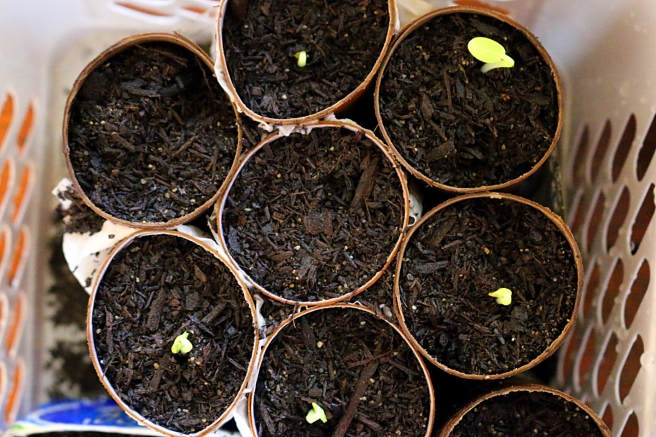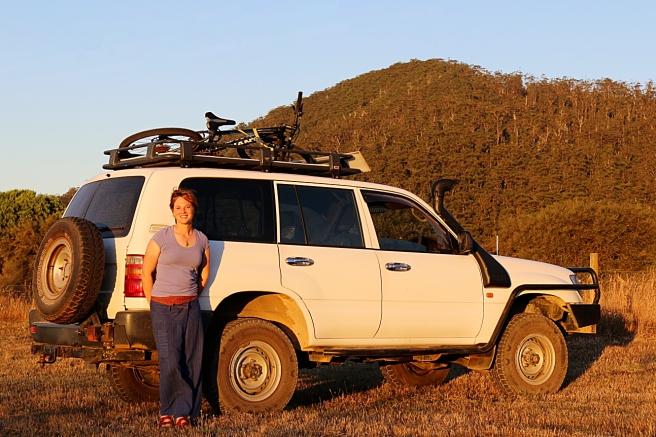
I’d been meaning to practice changing a tyre on the Land Cruiser for a couple of months. It’s got two spares: one on the back, and one underneath. As you know, I’ve got a fully-stocked tool bag and a good selection of recovery gear for if I get stuck in the wilderness.
What I hadn’t planned for was rusty nuts attaching the spare to the wheel carrier.
I was on my way to Yarrie Station for the weekend. It’s about a 400km drive heading into the north-east of the Pilbara. I got the flat 22km into the trip on the highway.
I wasn’t in a great spot – the car was close to the busy road and on a lean. I got out, and started unloading the jack and various attachments. And then the flies found me. The locals say they can tell when you’re stressed and emitting extra carbon dioxide. Approximately 800 attached themselves to my shirt and face.
Temperature was the other challenge. On the exposed plain outside of Karratha, surrounded by road and red dirt, it must have been close to 40 degrees, late morning.
I got out my Land Cruiser owner’s manual to check the best spot for putting the jack. I opened my mouth and flies blew in. A hot wind came up and caught the loose pages of the manual, and my hat.
I put the book of words away and decided to work on getting the spare off the back. Pig farming gave me big shoulders, but they couldn’t budge the three nuts on the wheel brace.
Hot, sticky, and frustrated, I reluctantly got out my RACT membership card and called for help.
I’m realising how tough – and prepared – you’ve got to be up here. My flat tyre was a little dress rehearsal, performed comfortably within the town boundary.
Since I’ve been in the west I’ve heard the coroner’s report into a teenager who died from heatstroke on a short bushwalk not far from here, and I’ve read about a truckie who got bogged in the bush and died when he left his rig to walk for help.
After my tyre had been changed, by a lovely young man from Newcastle, I kept going on my way to Yarrie. On the highway between Karratha and Port Hedland, my air con kept cutting out and I was dripping in the driver’s seat. I had the window down for airflow, and with my arm outside it felt like mid-40s. I was onto my third large bottle of water.
I stopped at Hedland for shepherd’s pie at a takeaway, and to pick up bread, milk, and a newspaper for Yarrie Station.
Another 100km, now heading south, and blue-grey clouds appeared, the first clouds I’d seen in five weeks. Fork lightening was splitting the sky over the basalt hills, and smoke spirals rose from the spinifex.
I collided with the storm, and the road in front disappeared. The rain hit the car like thousands of buckets of water being thrown at it. I found the sideroad to Yarrie, and turned the hubs to 4WD.
The red gravel road alternated from hard and reliable, to side-sliding slurry. I got behind a B-double carrying hay, and radioed to tell him I was going to overtake. I went wide to the right and hit the soft edge, and slewed back towards the truck. I was only going 60km an hour. I made a joke on the radio – I was thoroughly embarrassed.
The fork lightening had crept closer, and I watched it hit the same place ahead of me over and over. When I’m really scared my throat tightens, and adrenalin stings my fingers. I didn’t want to stop, but I didn’t want to keep going either. I hit a pothole and red dust that was lying under the puddle flew up like a flame under the bonnet.
An hour later on the other side of the storm, I found a sign to Yarrie. I took a winding sand track to a riverbank, crossed the almost-dry bed, and stopped at a boom gate. The sprinklers were going on the homestead’s green lawn and an old horse wandered around the yard. The adrenalin drained away.
After I’d settled in with a Tassie red and was sharing my last wheel of Red Cow Camembert with the station staff, the 31-year-old owner Annabelle Coppin arrived.
On the back of her Land Cruiser flat tray, she had a 300kg steer she’d just shot in the paddock – a “killer”, or in Tassie language, a home kill. With blood-crusted hands she shook mine, and went on to instruct the staff on unloading and skinning the beast.
Somehow I ended up trimming the offal for dinner, with a semi-circle of dogs around my feet. When the skinning and quartering were finished, we had heart, skirt, milk gut, liver, and kidneys crumbed on the bbq.
I went to sleep in a spinifex hut: an over-sized chook pen with netting walls stuffed with grass and watered with the hose. If it hadn’t been stormy and humid, a breeze would have blown through to cool me.
I’m a girl with common sense and plenty of skills, but I feel like a soft foreigner up here. There’s no doubt, it really is the Wild West.


